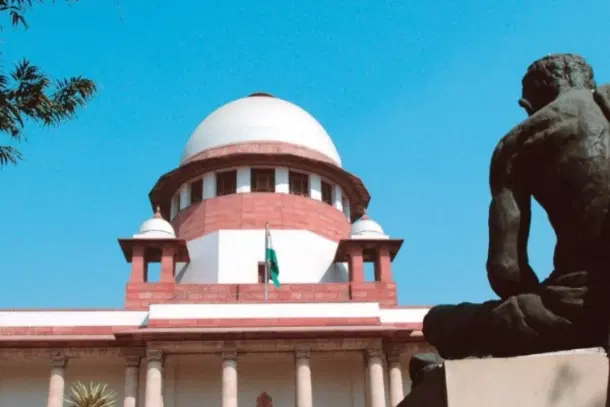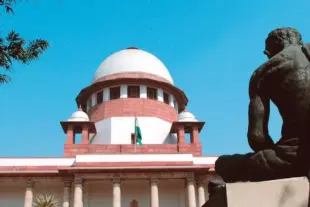News Brief
Waqf Case: CJI Khanna Transfers Matter To Bench Led By Incoming CJI Justice Gavai, Here's What Has Happened So Far
Arjun Brij
May 05, 2025, 03:49 PM | Updated 03:49 PM IST
Save & read from anywhere!
Bookmark stories for easy access on any device or the Swarajya app.


The Supreme Court on Monday (5 May) directed that petitions challenging the Waqf (Amendment) Act 2025 be heard by a Bench led by the incoming Chief Justice of India (CJI)— Justice BR Gavai, reported Bar & Bench.
CJI Sanjiv Khanna, who currently heads the Bench and is set to retire on 13 May, cited the complexity and time-intensive nature of the case. “I do not want to reserve any judgment or order even in the interim stage. This matter has to be heard on any reasonable day. It will not be before me,” he said.
The other Justices in the current Bench included Justices P V Sanjay Kumar and K V Viswanathan.
“List this next Wednesday (14 May) before a bench presided by Justice B R Gavai,” the court ordered, signalling the start of detailed proceedings on both interim and final reliefs.
This case arises from petitions before the Supreme Court challenging the constitutional validity of the Waqf (Amendment) Act, 2025, which was passed by the Lok Sabha on 3 April and the Rajya Sabha on 4 April, receiving Presidential assent on 5 April.
The amendment alters the Waqf Act 1995, primarily by removing waqf by user from the statutory definition, raising alarm among petitioners who argue that this could strip historic mosques, graveyards, and charitable sites of their religious status due to lack of formal deeds.
The Centre defended the law, citing widespread misuse of waqf provisions to encroach on private and public land. During a tense hearing on 16 April, the court voiced concerns about possible violations of Article 26 relating to religious freedom.
The Solicitor General assured the court on 17 April that controversial provisions, including appointing non-Muslims to Waqf Boards and de-notifying court-recognised waqf properties would not be implemented until further orders.
The court granted the Centre seven days to respond to pleas for z stay of the provisions of the Act and allowed petitioners five days thereafter to file a rejoinder. The matter was listed next for hearing today for a possible interim order.
Arjun Brij is an Editorial Associate at Swarajya. He tweets at @arjun_brij




